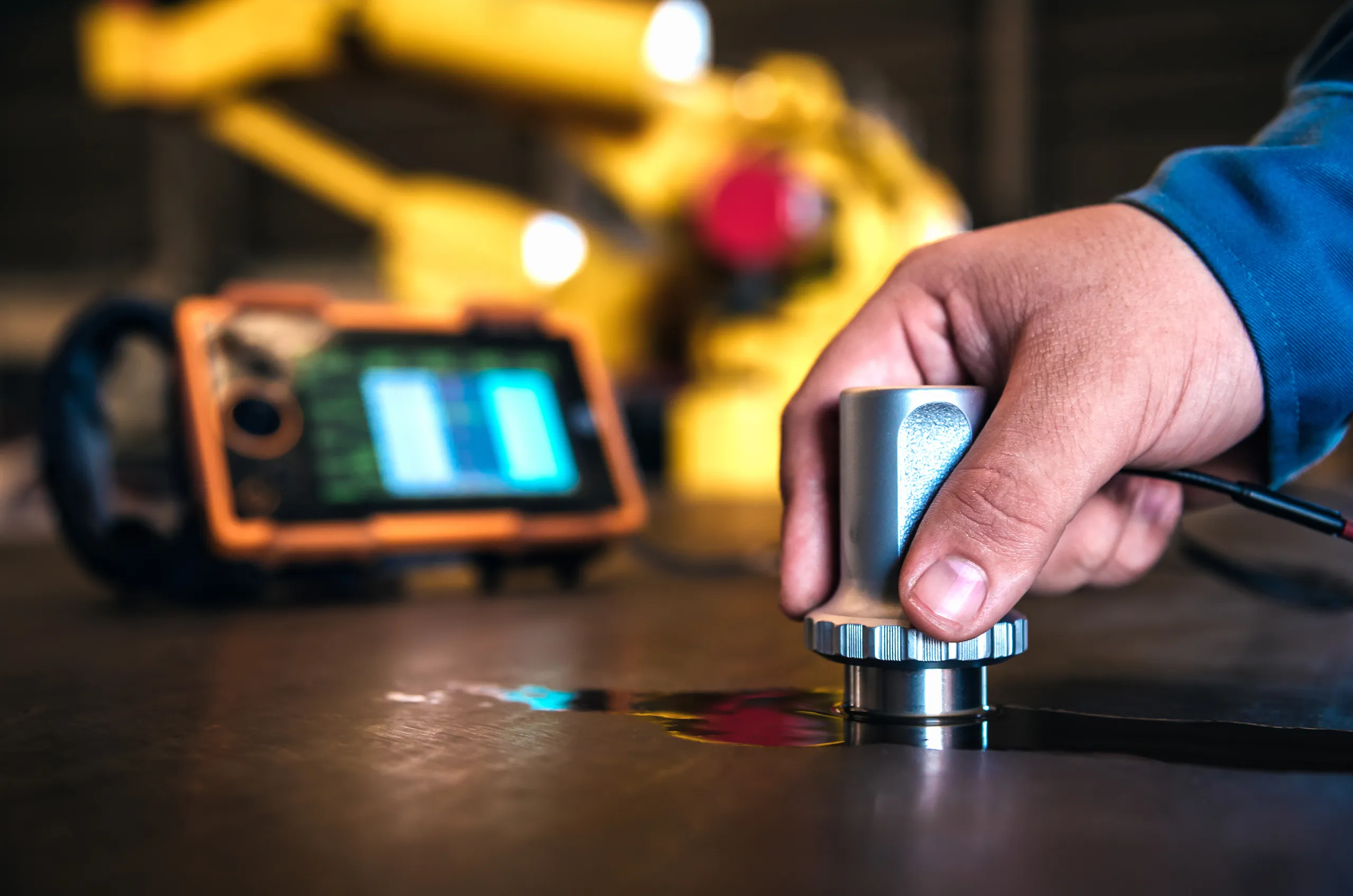ANSI B46.1 Surface Texture Non Destructive Testing in Automotive Manufacturing
The ANSI B46.1 standard outlines a comprehensive framework for non-destructive testing (NDT) of surface texture, which is critical in the automotive manufacturing sector to ensure the quality and performance of components. This test method is particularly useful for assessing the roughness, waviness, and lay characteristics that influence the wear, fit, and performance of parts like gears, bearings, and engine components.
In automotive manufacturing, precision and reliability are paramount. The ANSI B46.1 standard provides a standardized approach to measuring surface texture parameters such as Ra (arithmetic mean roughness), Rz (maximum height of irregularities), and Rt (total profile roughness). These measurements are essential for ensuring that the surfaces meet the required specifications, which can significantly impact the longevity and efficiency of automotive parts.
The testing process involves preparing the surface to be tested according to specific guidelines provided in the ANSI B46.1 standard. This includes cleaning the surface and ensuring it is free from contaminants like oil or dirt. Once prepared, the test specimen is inspected using a profilometer, which scans the surface and generates a profile of its texture. The data collected can then be analyzed against the standards set forth by ANSI B46.1 to determine if the surface meets the required specifications.
The importance of this testing cannot be overstated in automotive manufacturing. Surface irregularities can lead to increased wear, reduced performance, and even failure of components. By adhering to the ANSI B46.1 standard, manufacturers can ensure that their products meet the highest quality standards, which is crucial for maintaining customer satisfaction and ensuring regulatory compliance.
- Ensures Consistency: The ANSI B46.1 standard provides a consistent method for testing surface texture, allowing manufacturers to achieve uniformity across production lines.
- Promotes Quality: By adhering to this standard, automotive manufacturers can ensure that their components meet the highest quality standards, which is essential for maintaining customer satisfaction and ensuring regulatory compliance.
- Enhances Reliability: The ANSI B46.1 testing method helps identify potential issues early in the production process, reducing the risk of costly failures down the line.
Scope and Methodology
The scope of the ANSI B46.1 standard covers surface texture characteristics that are typically measured using profilometry techniques. The methodology involves preparing the test specimen according to specific guidelines provided in the standard, ensuring it is free from contaminants such as oil or dirt. The specimen is then inspected using a profilometer, which scans the surface and generates a profile of its texture.
The ANSI B46.1 standard specifies the parameters for measuring surface roughness, waviness, and lay. These parameters are essential for assessing the quality of surfaces in automotive manufacturing. For instance, the Ra parameter measures the arithmetic mean roughness, which is a measure of the average roughness over a given length. The Rz parameter measures the maximum height of irregularities, providing information about the peak-to-valley roughness. Lastly, the Rt parameter represents the total profile roughness, combining both Ra and Rz.
The methodology also includes acceptance criteria for each surface texture parameter. These criteria ensure that the surfaces meet the required specifications, which is crucial for ensuring the performance of automotive components. For example, a gear with an irregular surface could lead to increased wear and reduced efficiency, making it essential to adhere to these standards.
Eurolab Advantages
At Eurolab, we pride ourselves on offering unparalleled quality in all our services. Our proficiency in ANSI B46.1 surface texture testing is just one example of our commitment to excellence. With a team of highly qualified professionals and state-of-the-art equipment, we ensure that every test conducted meets the highest standards.
- Accurate Measurements: Our advanced profilometers provide precise measurements, ensuring accurate results.
- Compliance with Standards: We adhere strictly to ANSI B46.1 and other relevant international standards, ensuring that our tests are consistent and reliable.
- Rapid Turnaround Times: Our efficient processes allow for quick turnaround times, enabling you to receive your results promptly.
We understand the importance of timely and accurate testing in automotive manufacturing. That's why we offer flexible scheduling options to accommodate your needs. Whether you require one-off tests or ongoing quality control, Eurolab is here to support you every step of the way.
Why Choose This Test
- Promotes Quality: Ensures that automotive components meet the highest quality standards, which is essential for maintaining customer satisfaction and ensuring regulatory compliance.
- Enhances Reliability: Identifies potential issues early in the production process, reducing the risk of costly failures down the line.
- Consistency: Provides a consistent method for testing surface texture, allowing manufacturers to achieve uniformity across production lines.
- Accuracy: Advanced profilometers provide precise measurements, ensuring accurate results.
- Compliance with Standards: Adheres strictly to ANSI B46.1 and other relevant international standards, ensuring that tests are consistent and reliable.
- Rapid Turnaround Times: Efficient processes allow for quick turnaround times, enabling you to receive your results promptly.





